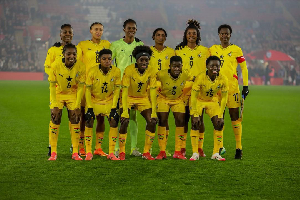The Ghana Water Company Limited (GWCL) says it is hopeful about the future after recording a 45% rise in revenue and a monthly deficit going down by 66% in the first month of their high impact performance improvement programme (HIPIP).
According to the Communications director, Stanley Martey who was upbeat about the future of GWCL told B&FT that “it will help us improve our operations”
He also indicated that “after the 100 day period we hope to reduce arrears by 40 to 50percent”.
GWCL in March embarked on a programme with the objective of transforming GWCL into a profitable public utility.
The reengineering campaign has also resulted in timely response to bursts and leakages, reliable service, prompt attention to customer complaints and increase in requests for new service connection.
With these improvements in service, “customers now pay their bills promptly”.
The new scheme is also to help retrieve the huge sums of money in arrears to enable the company use it for other projects to expand water supply.
It will challenge the company to intensify its supervision, monitoring and evaluation of its staff to redouble their efforts in order to achieve the set objectives.
In spite of the gains, there are a few challenges the company has strategized to surmount in the ensuing months.
“GWCL has embarked on several reforms in the past but has resolved that, this particular reform will lead to the attainment of the vision of becoming a world class water utility,” the Managing Director, Ing.Fred Lokko said.
The revenue increase will perhaps reduce the pressure on the MDAs who have been battling to settle their debts to the Ghana Water Company Limited (GWCL) in unpaid bills.
This follows a directive from the Finance Ministry to all Ministries, Departments and Agencies (MDAs) and other public institutions to foot their own utility bills to ease the financial burden on government.
However, government has directed that utility companies exempt public health and educational institutions.
Business News of Wednesday, 20 May 2015
Source: B&FT













